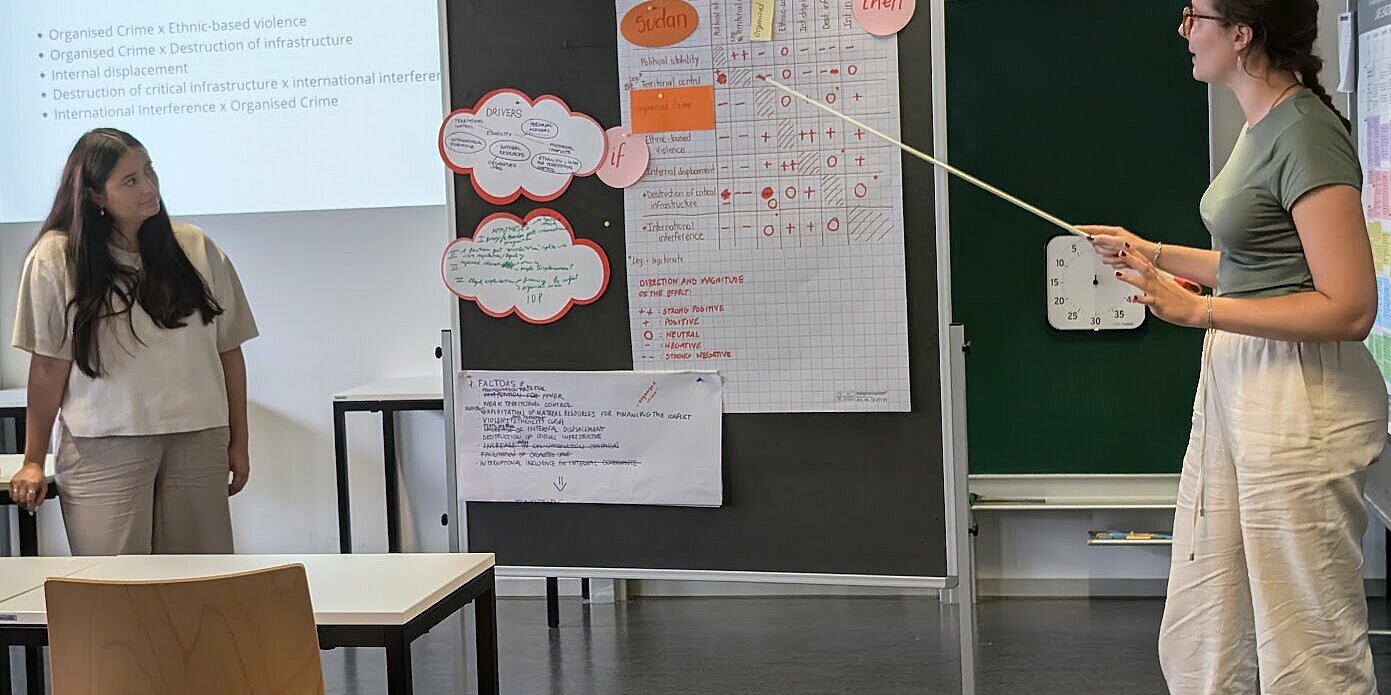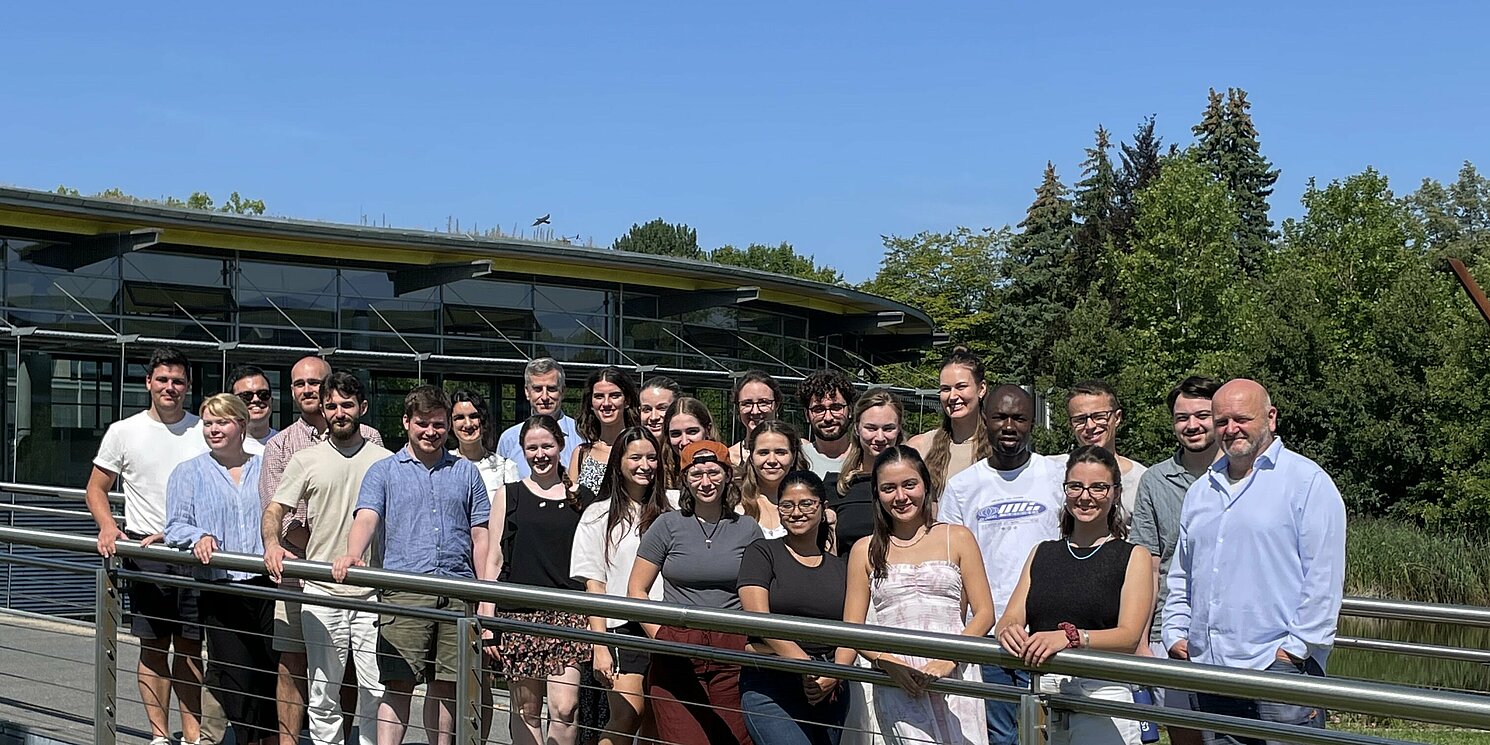From August 5 to 16, 2024, the 10th edition of the annual Summer School "Strategic Intelligence Analysis" took place at OTH Regensburg. This renowned program, developed by Prof. Dr. Markus Bresinsky in collaboration with the IMSISS-consortium (International Master in Security, Intelligence, and Strategic Studies) at the University of Glasgow, welcomed 20 students from 14 countries across the globe this year. Participants from countries such as Argentina, Finland, South Africa, and India traveled to Regensburg to gain practical experience in strategic analysis and sharpen their skills for future roles in global security.
Practical Learning and Real-World Application
A distinctive feature of the Summer School is the program's hands-on approach, which complements the academic inputs and specifically trains the application of strategic analysis methods. Professor Bresinsky is supported by experienced analyst Georg Fuchs and Johanna Schröder. A noteworthy innovation compared to previous years is the focus on analysing entire regions in sub-Saharan Africa rather than individual countries. This highlights the cross-border complexity of the prevailing conflicts. In small groups, the students developed strategic forecasts for their assigned regions and presented them in a final briefing. These exercises simulated real-world tasks in analytical work and provided participants with a deeper understanding of the global security landscape.
Expert Lectures from the Field
In addition to the main program, students benefited from lectures by renowned experts who shared insights from their years of on-the-ground work in various sub-Saharan African regions. The lectures included:
- Kwei Quaye-Foli, a former IMSISS student from Ghana and founder of the consulting firm Intelligensis. Quaye-Foli gave an exciting lecture on "Political Instability in Nigeria" and provided valuable insights into professional work as an intelligence analyst.
- Dr. Pîiga Yameogo, a postdoctoral researcher at the University of Glasgow originally from Burkina Faso, spoke about the "Political Economy of Conflicts in Sub-Saharan Africa."
- Dr. Emmet Foley, a researcher at Dublin City University, lectured on "Russia's Hybrid Warfare in Africa: From Wagner to the Africa Corps," shedding light on Russia's growing influence on the continent.
- Dr. Patrick Obuobi, a military analyst and academic from Ghana, presented his findings on "Mapping Strategic Intelligence on Regional Dynamics in Africa" and "Counterterrorism and Violent Extremism," drawing from hisextensive experience in the Ghanaian armed forces.
- Andrew Cameron from the International Red Cross (ICRC) spoke about the real-world consequences of strategic decisions on the ground, offering a humanitarian perspective on the conflicts in sub-Saharan Africa.
These expert lectures, which were always followed by intense Q&A sessions, provided students with deeper insights into the complex realities on the ground that they will face as future analysts.
Beyond the Seminar Room: Networking and Experience Sharing
The 2024 Summer School also placed great emphasis on peer-to-peer learning and critical thinking. Daily quiz rounds tested students' knowledge beyond their assigned regions, while peer-review sessions provided opportunities for constructive feedback and collective growth. These activities helped participants sharpen their analytical skills and prepare for the challenges of strategic analysis.
The organisation of the annual Summer School programme is supported by the OTH Regensburg’s Zentrum für Weiterbildung und Wissensmanagement. The course is open to external participants.


